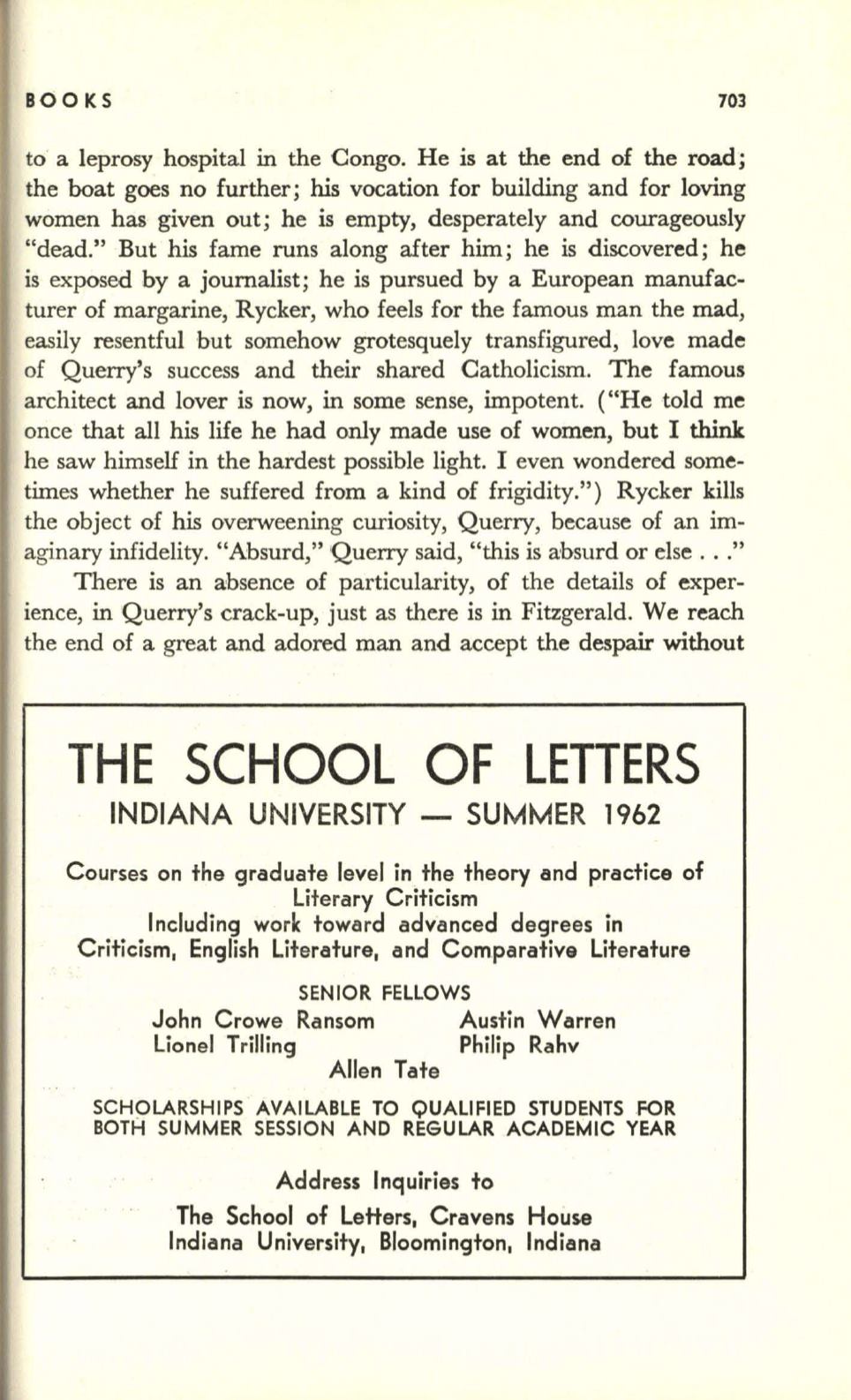
BOOKS
703
to a leprosy hospital in the Congo. He is at the end of the road;
the boat goes no further; his vocation for building and for loving
women has given out; he is empty, desperately and courageously
"dead." But his fame runs along after him; he is discovered; he
is exposed by a journalist; he is pursued by a European manufac–
turer of margarine, Rycker, who feels for the famous man the mad,
easily resentful but somehow grotesquely transfigured, love made
of Querry's success and their shared Catholicism. The famous
architect and lover is now, in some sense, impotent. ("He told me
once that all his life he had only made use of women, but I
think
he saw himself in the hardest possible light. I even wondered some–
times whether he suffered from a kind of frigidity.") Rycker kills
the object of his overweening curiosity, Querry, because of an im–
aginary infidelity. "Absurd," Querry said, "this is absurd or else ..."
There is an absence of particularity, of the details of exper–
ience, in Querry's crack-up, just as there is in Fitzgerald. We reach
the end of a great and adored man and accept the despair without
THE SCHOOL OF LETTERS
INDIANA UNIVERSITY - SUMMER 1962
Courses on the graduate level in the theory and practice of
literary Criticism
Including work toward advanced degrees in
Criticism, English literature, and Comparative Literature
SENIOR FELLOWS
John Crowe Ransom
Lionel Trilling
Austin Warren
Philip Rahv
Allen Tate
SCHOLARSHIPS AVAILABLE TO QUALIFIED STUDENTS FOR
BOTH SUMMER SESSION AND REGULAR ACADEMIC YEAR
Address Inquiries to
The School of Letters, Cravens House
Indiana University, Bloomington, Indiana


